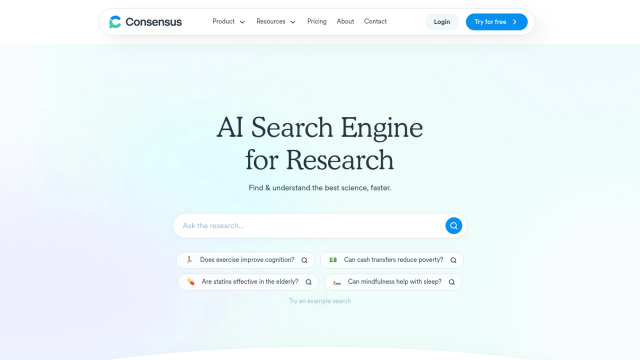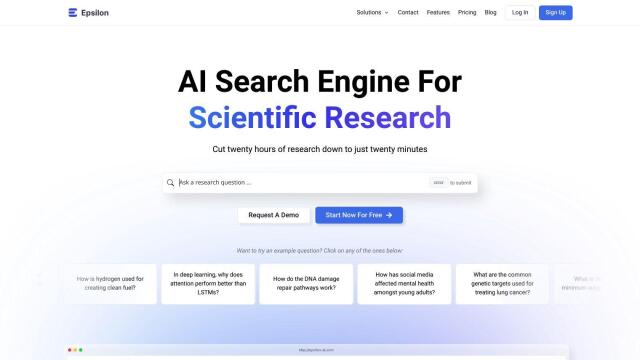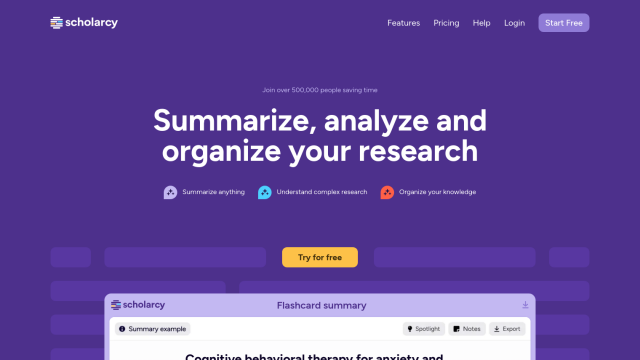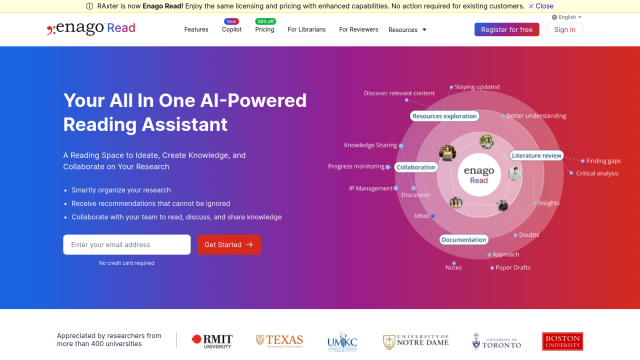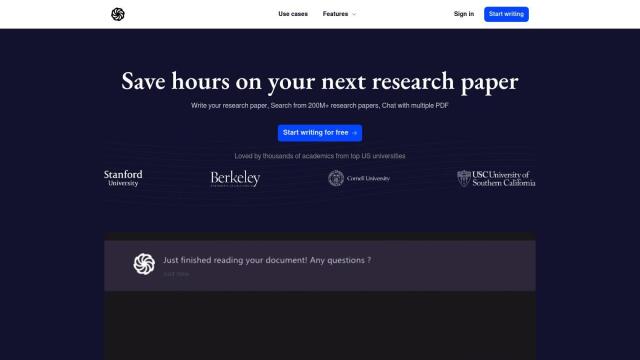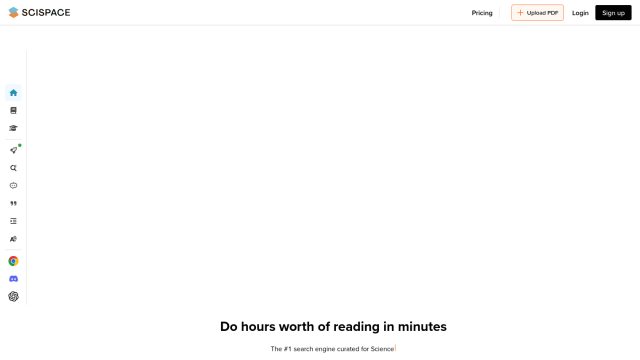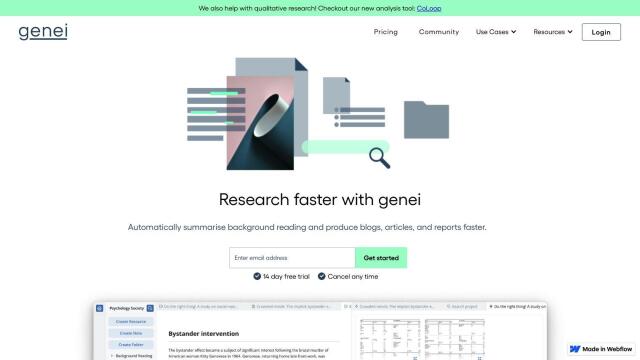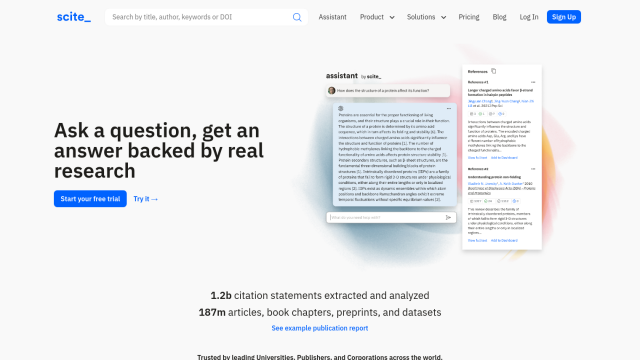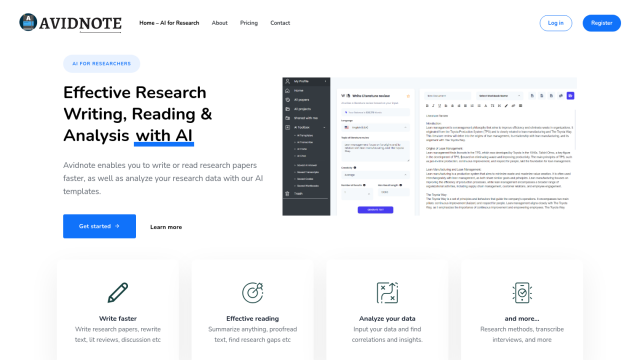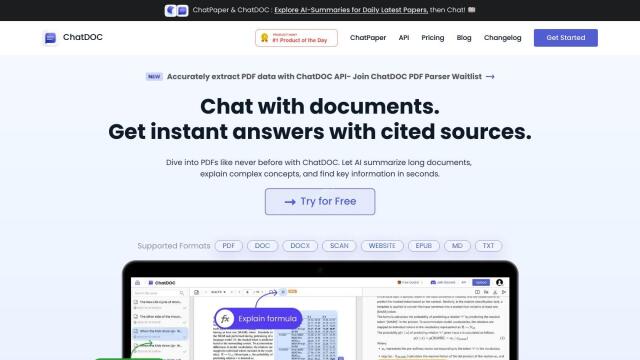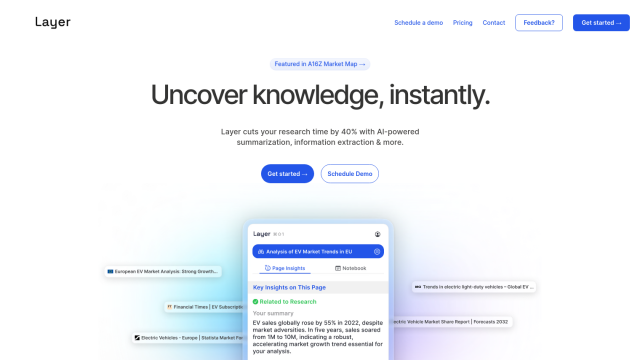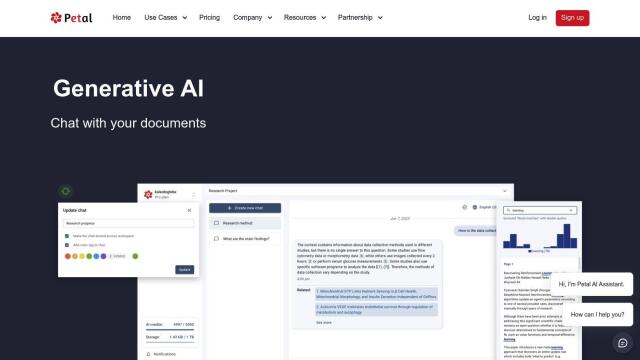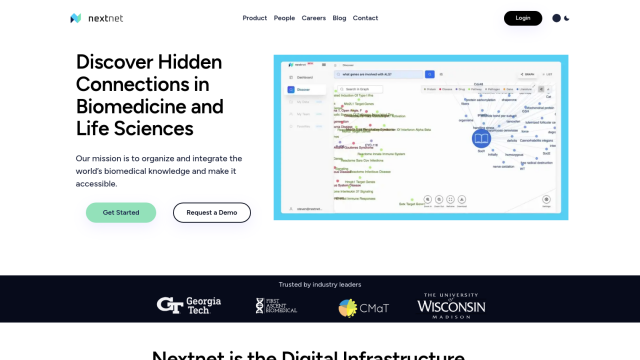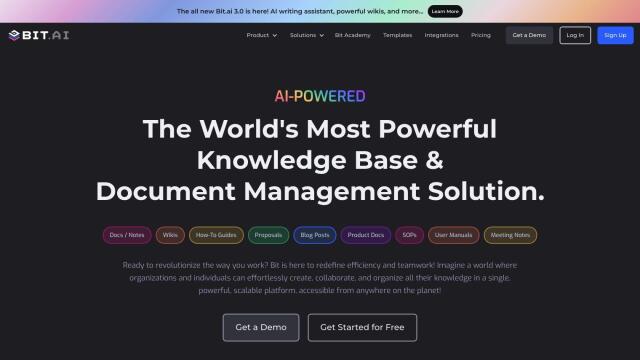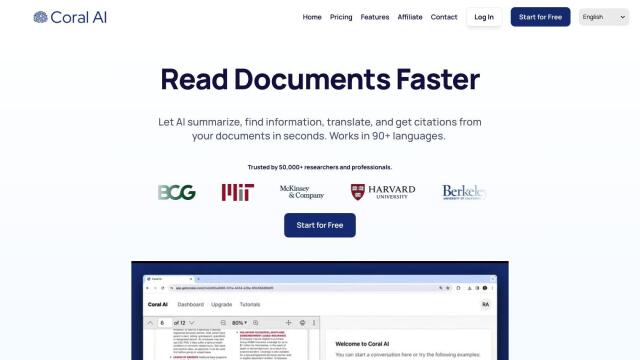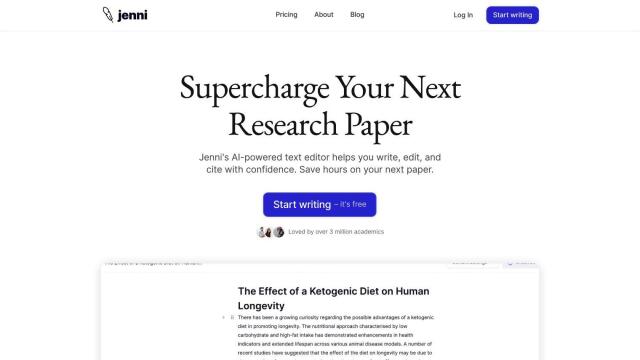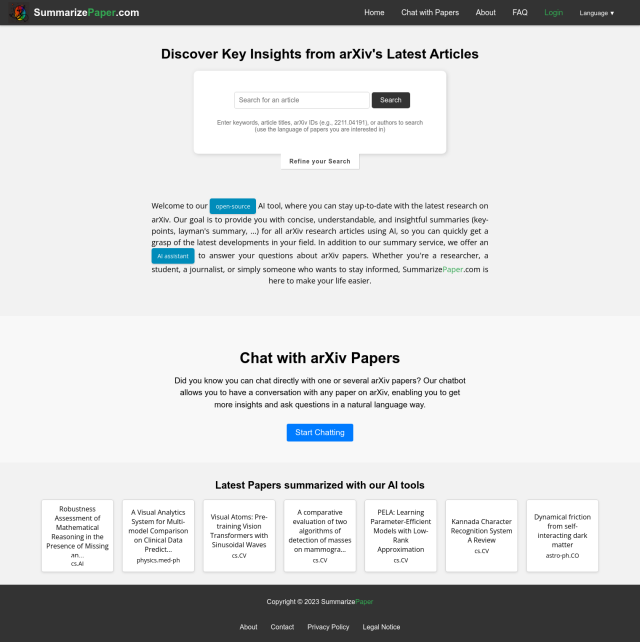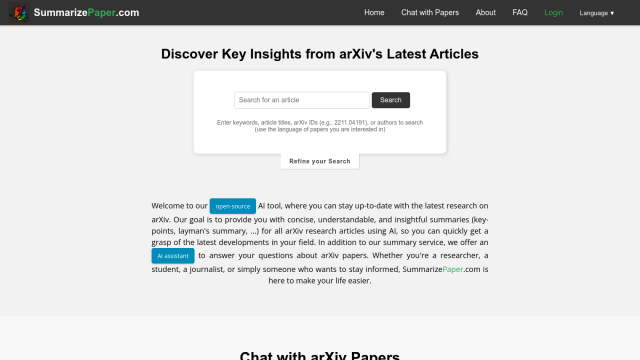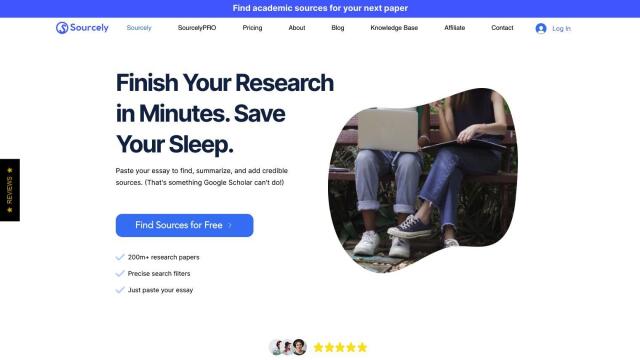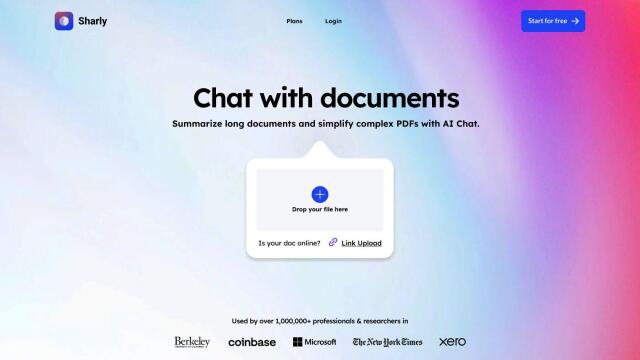Question: Can you recommend a platform that enables collaborative research and document analysis with features like interactive graphs and linked sources?

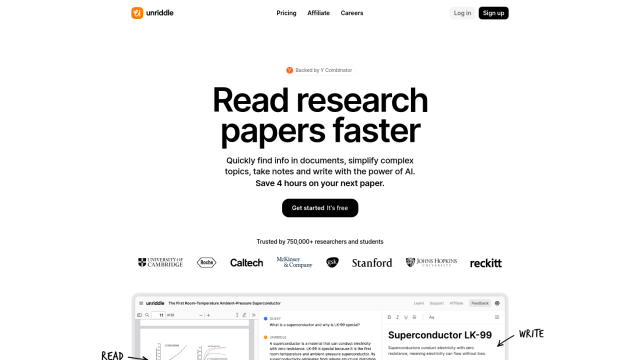
Unriddle
If you need a platform to facilitate collaborative research and document analysis with interactive graphs and hyperlinked sources, Unriddle is worth a look. It comes with an AI assistant that can work on any document, answering your questions directly, summarizing complex information and generating interactive graphs to show relationships. It can be used collaboratively through shared workspaces, and it can handle large PDF files. It can also be integrated through a Chrome extension and supports more than 90 languages.


Elicit
Another good option is Elicit, which can help you quickly find, summarize and extract data from academic papers. It's particularly useful for empirical subjects like biomedicine and machine learning, with features to accelerate literature reviews and automate systematic reviews. With its ability to extract data into formatted tables and identify themes, Elicit can help you get a lot more out of your research. It also offers a free basic version, so it's useful for a variety of situations.

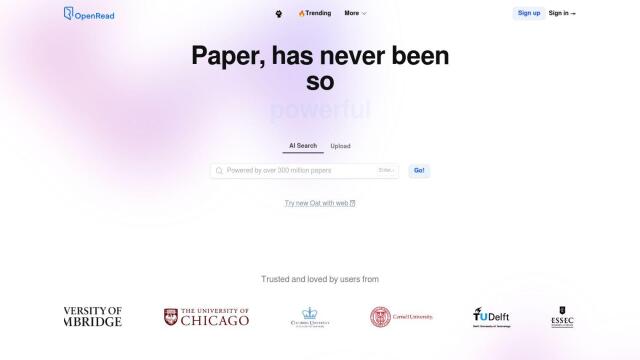
OpenRead
If you want to tackle a wider variety of papers and web sources, OpenRead is worth a look. It's got a powerful search interface with tools like Paper Espresso for summarizing paper content and Paper Q&A for asking questions about papers. The tool also has a Related Paper Graph to show relationships between papers, which can be useful for exploring a lot of information. OpenRead offers a variety of pricing levels, so it can accommodate different levels of research needs and budgets.
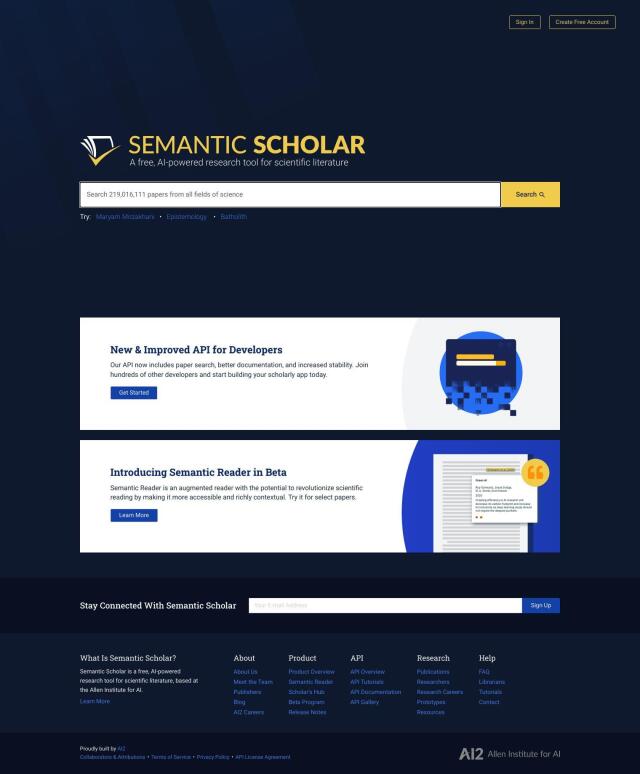
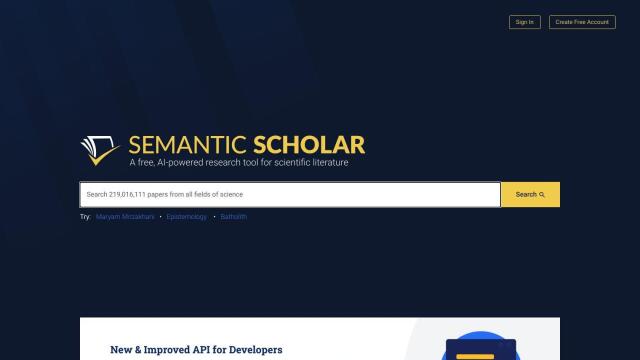
Semantic Scholar
Semantic Scholar is another powerful platform, particularly useful for finding and reading scientific papers. It offers AI-powered research feeds, paper recommendations and the ability to set up automated email alerts. Semantic Scholar also offers tools to organize papers into folders, share with collaborators and generate citations in different styles. Its Academic Graph API can be integrated into other projects, so it's a good choice for researchers who want to build their own tools.

